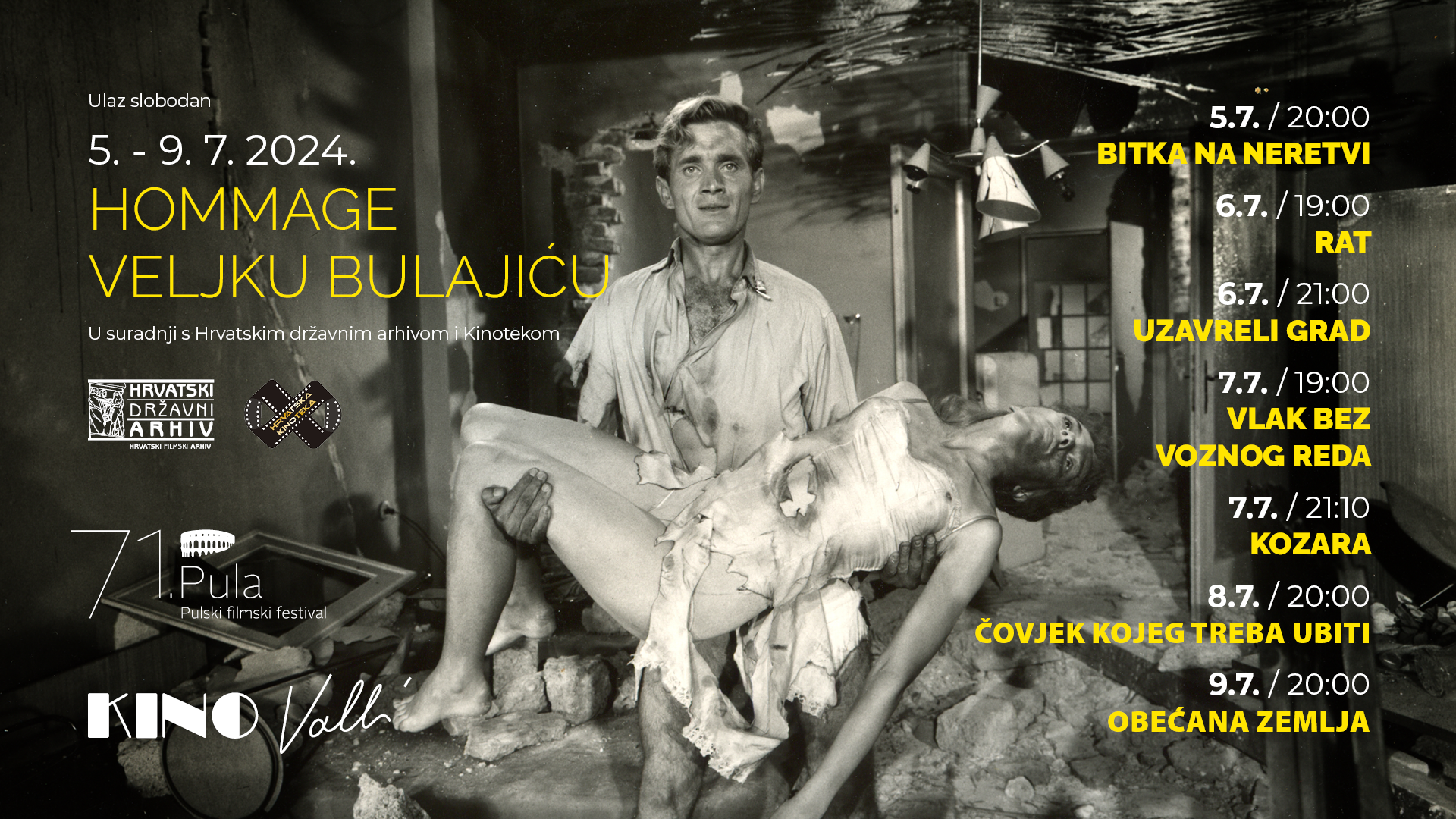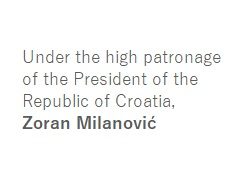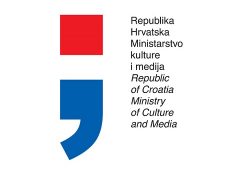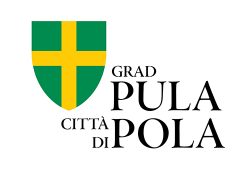
VALLI CINEMA, July 5 – 9, 2024
In cooperation with the Croatian State Archives and Croatian Cinematheque
Veljko Bulajić (28 March 1928 – 2 April 2024) directed 14 feature films, two documentary film Skopje ’63 (1964) and Titovi memoari (1980), and two TV series. He was born in Montenegro, and lived in Zagreb after the war. He went to Centro Sperimentale di Cinematografia in Rome (1935), one of the oldest films schools in Europe, where he was introduced to the work of Federico Fellini and Vittorio De Sica, whose neorealistic poeticism was a significant influence. His debut feature, Train Without a Timetable (1959), won the Golden Arena for Best Screenplay and was screened in competition at Cannes. The film showed the relocation of inhabitants from the Dalmatian Hinterland to Vojvodina after World War II, and is heavily characterised by neorealism. In 1986 he made the film The Promised Land, which examines the politics of collectivisation. The political counterpart to these films is Boom Town (Grand Golden Arena), an analysis of the phenomenon of industrialisation, both its faults and its virtues. However, he gained true domestic and global fame with his war films with partisan themes: Kozara (1962) – Grand Golden Arena and Gold Medal at the festival in Moscow, and especially The Battle of Neretva (1969) – nominated for the Academy Award for Best Foreign Language Film and the most expensive Yugoslav film ever made. The film The Man to Kill (1979) – Bronze Arena for Best Director, is a surreal legend about the self-proclaimed Montenegrin emperor Šćepan Mali (Šćepan the Little) in the 18th century and political commentary of the global block division, advocating for the third, ‘non-aligned’ way. He received the national Vladimir Nazor Award for life achievement and the Zlatni Oktavijan Award for life achievement by the Croatian Society of Film Critics. The monograph Veljko Bulajić: Vlakom bez voznog reda u povijest filma was published in 2015.





